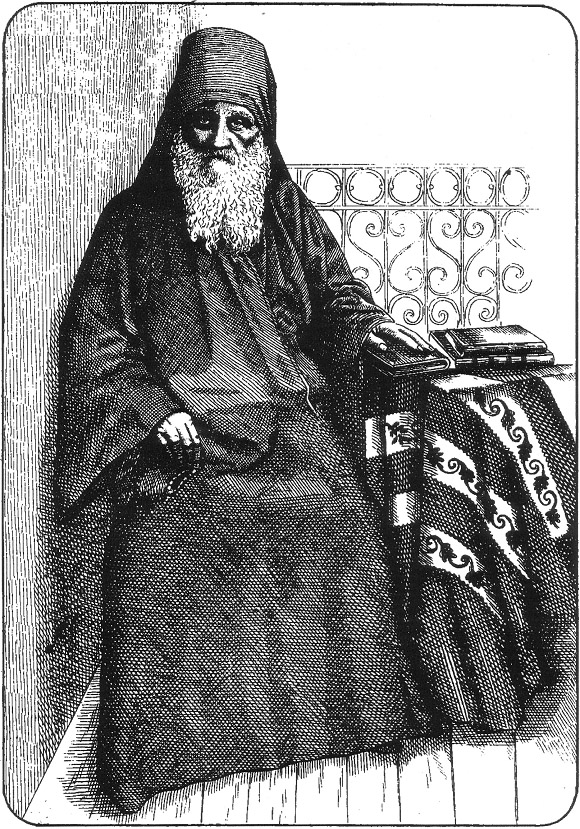Πρωτοψάλτης της Σκήτης του Αγ. Προδρόμου, Αγ. Όρος / Protopsaltis
of the Skete of Prodromos, Mt Athos
Filotheu Monahul: According to his direct disciples, Nektarios was born in the city of Husi, Moldavia
/ Moldovlahia / Bogdania around 1804. His parents send him to learn music to a Greek
bishop named Gregorios, retreated in Moldova, after he completed his regular school
with the same teacher. He entered Neamt Monastery and became student of Dorothei
the Hieromonk, Protopsaltis of that time in Neamt. Dorothei was the student of Visarion,
who was still alive when Nectarie was tonsured as a monk. The oldest manuscript
of Nectarie was written in Jerusalem, in 1836. One biography claims that when he
returned from Jerusalem was tonsured in Neamt. We don't know that; what we know
is he returned to Neamt, then moved to Valachian monasteries of Ciolanu and Caldarusani,
and finally reached Athos in 1842 and became a hermit, with his brother, near St.
Anna, carving crosses. There he started to chant, being invited to many feasts at
the great monasteries. In 1852 he moved to the Rumanian skete of Prodromu. He passed
away to our Lord at the age of 95, in 1899, the night of 17th to 18th of December.
He promoted an ecumenical view of the Byzantine inheritance, composing different
chants mainly in Rumanian, but also Greek and Slavonic. Some of them were published
starting with 1897 by his disciple, hieromonk Dometie Ionescu (this was one of the
most loved Byzantine music book in Latin characters ever). In Iasi Archim. Clement
Haralam published in 2003 one of his masterpieces, the Sticherarion for the feasts
of the year. 3 years ago prof. Vasile Vasile published his chants for the Divine
Liturgy, with many Axions in the three languages mentioned before; unfortunately
the text of his longer chants was modified in many places in this edition.
Prof. Trian Ocneanu: A couple of pages from one of the
MSS at Iasi featuring, besides Rumanian translations and adaptations from Greek
authors, his own chants: here it is the service of the Akathistos. The text is in
Rumanian written in the Cyrillic alphabet. Nectarie's chants are scattered all over
the Holy Mount in dozens of MSS.
Nectarie-Ms-p77 [
jpg, 1.9 Mb]
Nectarie-Ms-p78 [
jpg, 1.6 Mb]
